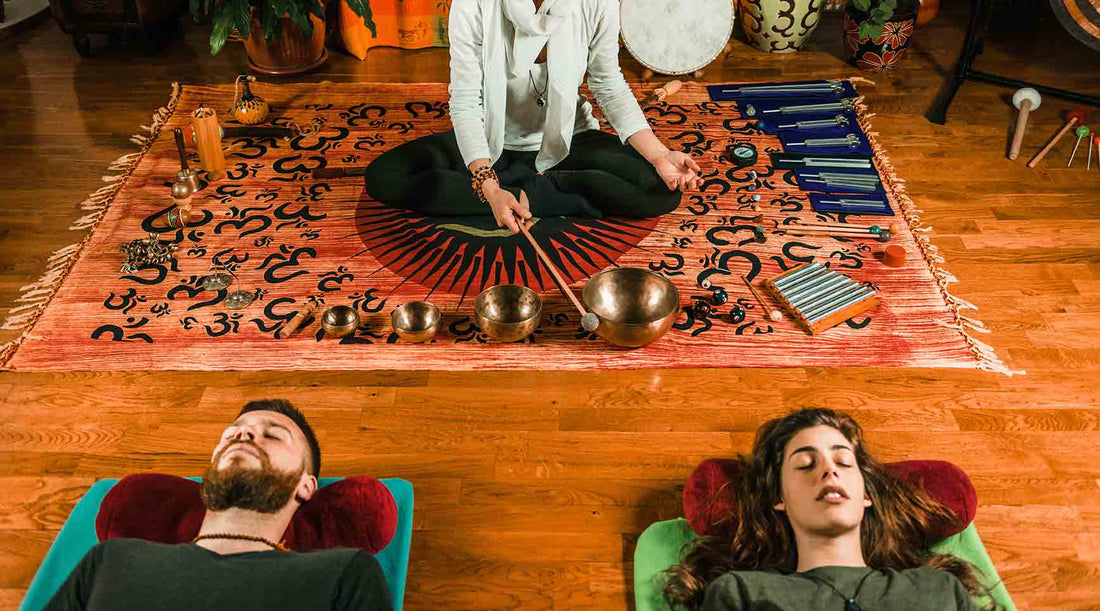
Harnessing the Power of Non-Sleep Deep Rest (NSDR) for Mental and Physical Well-being
In today’s fast-paced world, achieving adequate rest and relaxation is more challenging than ever. With stress and anxiety on the rise, many are turning to innovative methods to improve their mental and physical health.
One such method, Non-Sleep Deep Rest (NSDR), is becoming increasingly popular for its wide-ranging benefits. Coined by neuroscientist Dr Andrew Huberman, NSDR is a collection of practices designed to guide the mind and body into a state of deep relaxation, all without the need for actual sleep.
This article will explore what NSDR is and how you can use it to boost your overall well-being.
What is Non-Sleep Deep Rest (NSDR)?
Non-Sleep Deep Rest (NSDR) refers to techniques that guide individuals into a deeply relaxed yet conscious state, similar to sleep but without actually losing consciousness. These techniques include yoga nidra, meditation, hypnosis, and progressive muscle relaxation.
NSDR is designed to induce a state of mental and physical rejuvenation, making it a powerful tool for restoring energy and alleviating stress during the day. Unlike meditation, which focuses primarily on mindfulness and attention, NSDR is about relaxation and recovery.
The term has gained significant popularity due to its ability to help individuals recover from sleep deprivation and enhance their ability to focus and concentrate.
While NSDR cannot replace sleep, it offers some restorative benefits of sleep by calming the nervous system and allowing the mind to reset.
Mental Health Benefits of NSDR
One of the most significant advantages of NSDR is its impact on mental well-being. NSDR has been shown to reduce anxiety and improve emotional regulation.
By slowing down the nervous system and lowering cortisol levels (the hormone associated with stress), NSDR helps the body manage daily stressors more effectively.
Regular practice can help manage symptoms of anxiety and depression, offering a simple yet powerful tool for improving mental health.
Additionally, NSDR enhances cognitive function. Studies have indicated that relaxation techniques like mindfulness meditation increase connectivity within the brain’s default mode network.
An active system when we are at rest and not focused on the outside world. This heightened connectivity improves memory, attention, and processing speed.
Physical Benefits of Non-Sleep Deep Rest
NSDR is not only beneficial for the mind but also for the body. One of its primary physical advantages is stress reduction. By guiding the body into a deeply relaxed state, NSDR can lower heart rate and blood pressure, which are critical factors in reducing stress-related illnesses.
This makes it a valuable tool for managing conditions such as high blood pressure, anxiety-related disorders, and even chronic pain.
Moreover, NSDR enhances the immune system by reducing stress and inflammation. Chronic stress is widely acknowledged to affect the immune system, making the body more susceptible to illnesses.
Regularly practising NSDR, individuals can recover more quickly from illness and boost their energy levels during the day.
For those struggling with pain management, NSDR provides a natural and non-invasive solution.
Progressive muscle relaxation and body scanning are techniques that help individuals release tension they may not be aware of, improving body awareness and reducing pain perception.
This makes NSDR an ideal complementary practice for those dealing with chronic pain conditions, migraines, and muscle tension.
Improving Sleep Quality
Interestingly, although Non-Sleep Deep Rest isn’t a substitute for sleep, it can still significantly improve sleep quality.
By engaging in NSDR during the day, individuals often find it easier to fall asleep at night. Practices like yoga nidra guide the body into a relaxed state that prepares it for a better night’s rest.
Moreover, NSDR can serve as a tool for compensating for lost sleep. If you’ve had a rough night or couldn’t get enough sleep, a 20-30 minute NSDR session can help restore some of the mental clarity and energy needed to get through the day.
The process of diaphragmatic breathing and extended exhalations that are part of NSDR exercises also helps trigger the relaxation response, which is vital for resetting the body’s circadian rhythm and improving overall sleep health.
Incorporating NSDR into Your Daily Routine
One of the most appealing aspects of Non-Sleep Deep Rest is its accessibility. You don’t need special equipment or a particular skill set to begin practising it. Here’s how you can get started:
- Create a Relaxation Space: Dedicate a quiet, comfortable spot in your home where you won’t be disturbed. This could be your bedroom, living room, or even a quiet office space.
- Set Aside Time for Practice: Schedule specific times during the day to practise NSDR. Many find that practising NSDR in the afternoon or after a long day at work is ideal for unwinding.
- Use Guided Meditations: Many people benefit from using guided NSDR scripts or videos. These are widely available online, especially on platforms like YouTube, where neuroscientists like Dr Andrew Huberman offer guided sessions.
- Be Consistent: Like with any practice, consistency is key. Aim for short, regular sessions—just 20-30 minutes a day can provide profound benefits over time.
- Experiment with Techniques: There’s no one-size-fits-all approach to NSDR. Try different techniques like yoga nidra, progressive muscle relaxation, or self-hypnosis to find what works best for you.
Conclusion: A Path to Greater Well-Being
Incorporating Non-Sleep Deep Rest (NSDR) into your daily routine is a highly effective and accessible way to boost mental and physical health.
Whether you’re looking to manage stress, improve sleep quality, or enhance cognitive function, NSDR offers a simple yet powerful tool for achieving deep relaxation and rejuvenation. The benefits are clear, and the practice is within your reach.
By regularly practising NSDR, you can enjoy a calmer mind, a healthier body, and a more balanced lifestyle.
In a world where rest and recovery are often overlooked, NSDR provides a much-needed opportunity to slow down, recharge, and restore your well-being. Why not give it a try today?
